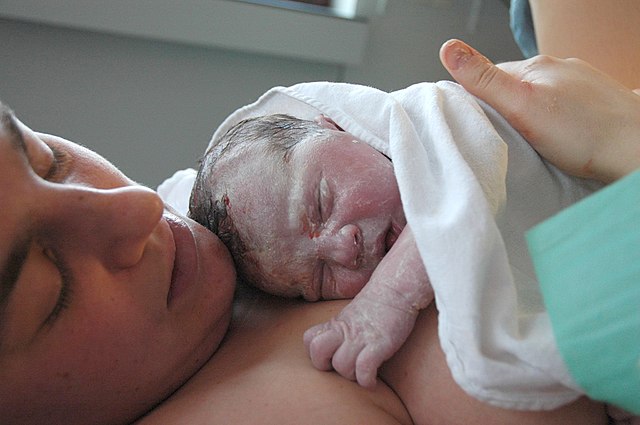Introduction
Welcome to our weblog dedicated to exploring effective therapies for postpartum depression (PPD). Welcoming a new life into the world should be a joyous occasion, but for many mothers, it can also bring about feelings of sadness, anxiety, and despair. Postpartum depression affects around 1 in 7 women, and its impact can be profound not only on the mother but also on the entire family unit. Fortunately, there are various therapies and interventions available to help women navigate through this challenging period and emerge stronger and more resilient.
Effective Therapies
- Cognitive-Behavioral Therapy (CBT): CBT is a widely used therapeutic approach for treating postpartum depression. It focuses on identifying and challenging negative thought patterns and behaviors, helping women develop coping strategies and problem-solving skills. Several studies have shown CBT to be effective in reducing symptoms of PPD and improving overall well-being.
- Interpersonal Therapy (IPT): IPT is another evidence-based therapy that can be beneficial for postpartum depression. It focuses on improving interpersonal relationships and addressing any conflicts or life transitions that may contribute to depressive symptoms. By enhancing communication skills and social support networks, IPT can help women navigate the challenges of motherhood more effectively.
- Medication: In some cases, medication may be prescribed to alleviate symptoms of postpartum depression, particularly if the symptoms are severe or not responding to other forms of treatment. Antidepressant medications, such as selective serotonin reuptake inhibitors (SSRIs), are commonly used and have been shown to be safe and effective for breastfeeding mothers.
- Support Groups: Joining a support group for mothers with postpartum depression can provide a sense of validation and camaraderie. Sharing experiences with others who are going through similar challenges can reduce feelings of isolation and offer valuable emotional support. Many communities offer both in-person and online support groups for women struggling with PPD.

Conclusion
Postpartum depression is a serious condition that requires prompt and appropriate treatment. By seeking help and exploring the various therapies available, women can find relief from their symptoms and regain a sense of control and well-being. Whether through individual therapy, medication, or support groups, there is hope for recovery, and no woman should have to face postpartum depression alone.
If you or someone you know is struggling with postpartum depression, know that help is available. Speak to a healthcare provider, reach out to loved ones, and remember that healing is possible.
Referecnes
- Grote, N. K., et al. (2009). A Meta-analysis of Depression During Pregnancy and the Risk of Preterm Birth, Low Birth Weight, and Intrauterine Growth Restriction. Archives of General Psychiatry, 66(4), 383-390.
- Spinelli, M. G. (2004). Postpartum Psychiatric Disorders: Overview and Issues for Obstetric Care. Obstetrics & Gynecology, 103(6), 1284-1292.
- Tandon, S. D., et al. (2011). A Randomized, Controlled Trial of Interpersonal Psychotherapy for Postpartum Depression. Psychiatric Services, 62(11), 1402-1406.
- Wisner, K. L., et al. (2006). Prevention of Recurrent Postpartum Depression: A Randomized Controlled Trial. JAMA Psychiatry, 63(5), 477-485.
- Misri, S., et al. (2004). The Use of Paroxetine and Cognitive-behavioral Therapy in Postpartum Depression and Anxiety: A Randomized Controlled Trial. Journal of Clinical Psychiatry, 65(9), 1236-1241.
- Sockol, L. E. (2015). A Systematic Review of the Efficacy of Cognitive Behavioral Therapy for Treating and Preventing Perinatal Depression. Journal of Affective Disorders, 177, 7-21.
- Goodman, J. H., et al. (2016). Maternal Postpartum Depression and Child Development: An Examination of Meta-analyses. Journal of Maternal-Fetal & Neonatal Medicine, 29(19), 3171-3176.
- Morrell, C. J., et al. (2009). Costs and Benefits of Community Postnatal Support Workers: A Randomised Controlled Trial. Health Technology Assessment, 13(49), 1-134.
- Cohen, L. S., et al. (2004). Relapse of Major Depression During Pregnancy in Women Who Maintain or Discontinue Antidepressant Treatment. JAMA, 291(5), 509-516.
- Battle, C. L., et al. (2013). Interpersonal Psychotherapy for Depressed Women with Sexual Abuse Histories: A Pilot Study in a Community Mental Health Center. Journal of Nervous & Mental Disease, 201(2), 151-157.
- Dennis, C. L., et al. (2017). Psychological Treatments for Paternal Postnatal Depression: A Systematic Review and Meta-analysis. Journal of Affective Disorders, 225, 628-647.
